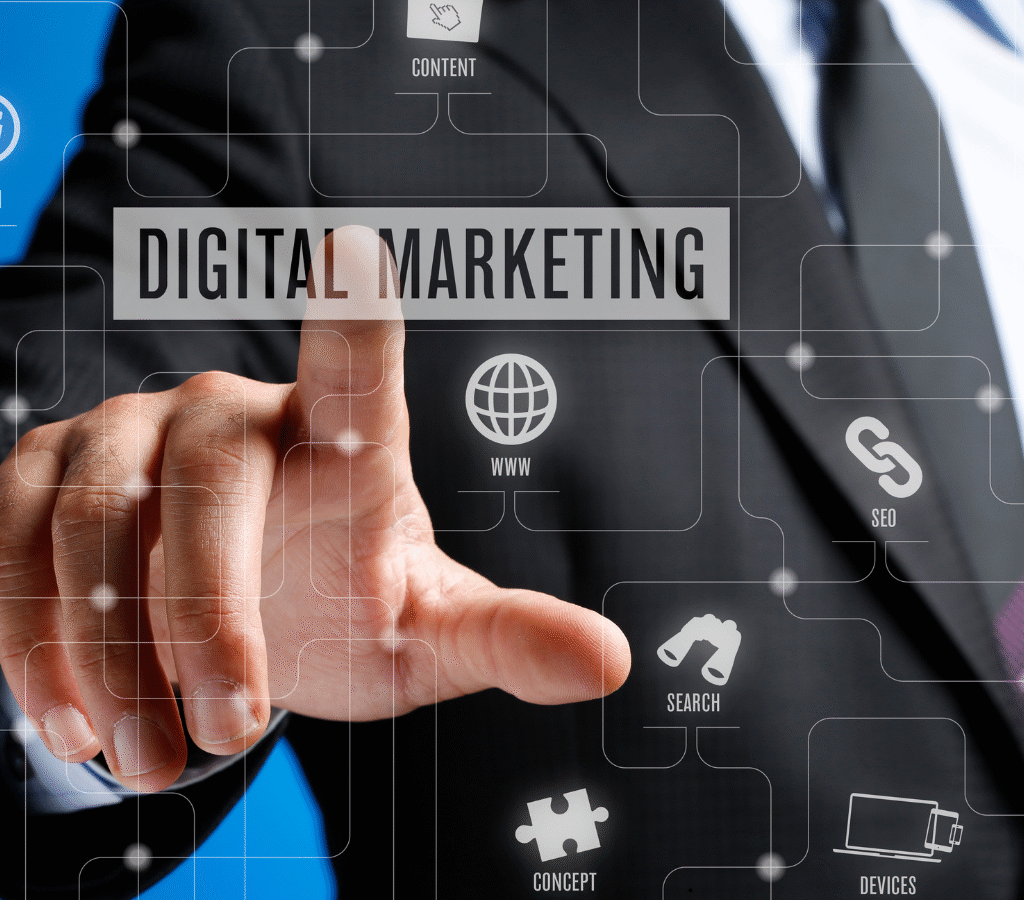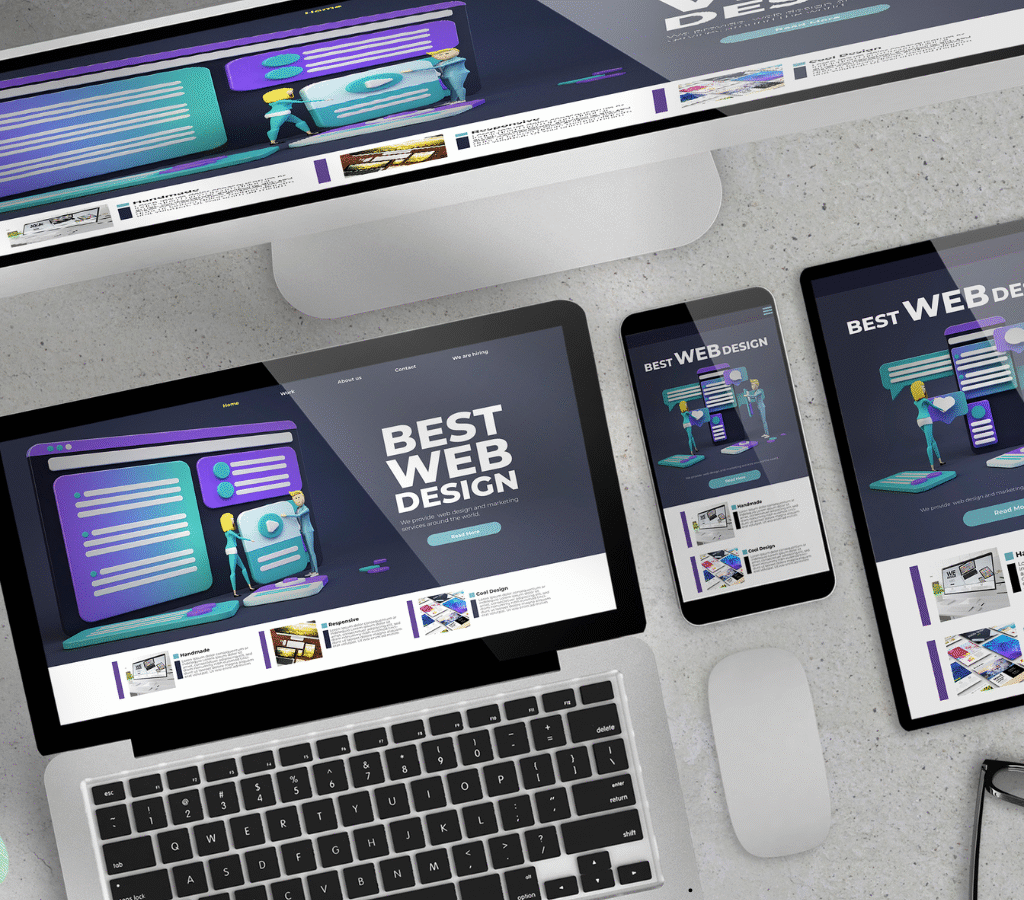There was a time when having a website was considered a luxury — a fancy business card for elite companies or tech-savvy entrepreneurs. Marketing? That was done through TV, print, word of mouth, and if you were really bold — a radio jingle.
Fast-forward to today, and the entire script has flipped.
Now, if you don’t have a digital presence — or worse, have a bad one — you might as well not exist in the eyes of your audience. Your website is your headquarters. Your social media is your voice. Your ads are your invitation. And together, web development and digital marketing are no longer just tools — they are the foundation on which every brand is built.
This blog explores how we got here — from irrelevance to indispensability — and why no business today can thrive without these digital pillars.
The Early Days: When “Online” Was Optional
In the late 90s and early 2000s, the internet was still finding its place. Businesses that had websites were often large corporations or tech startups. These websites were basic, often static, and served as a digital brochure. People still trusted printed directories like the Yellow Pages or relied on neighborhood recommendations.
At that time:
- Marketing happened through newspapers, flyers, hoardings, and television.
- Websites were slow and lacked interactivity.
- SEO, paid ads, or digital funnels weren’t even part of everyday vocabulary.
Most small and mid-sized businesses didn’t see a real need to invest in web presence — and truthfully, they could survive without it.
The Shift: How the World Went Digital
Then came smartphones, social media, and Google.
By the mid to late 2000s, the digital revolution began reshaping how consumers interacted with brands. Search engines became the go-to place to find businesses. Facebook and Instagram weren’t just social platforms anymore — they became marketplaces, communities, and brand stages.
Suddenly:
- People started Googling everything before buying.
- Brands realized they could target audiences rather than just broadcast.
- Speed, accessibility, and engagement became key factors in customer retention.
That’s when businesses started understanding the power of websites and digital marketing. What was once optional now became a major competitive advantage.
Now: It’s No Longer a “Nice-to-Have” — It’s Non-Negotiable
In today’s world, your website and your online strategy define your brand. It’s the first impression, the core experience, and often, the conversion tool. Whether you’re a startup, a freelancer, a D2C brand, or a legacy business — if you’re not online, you’re invisible.
Here’s why:
Websites Are the New Storefronts
Forget footfall — today it’s all about site traffic. Customers now “walk into” your website before they ever walk into your physical store (if you even have one).
Your website:
- Builds trust (professional design, fast loading, good UI)
- Educates your audience (blogs, FAQs, product pages)
- Converts leads (CTAs, forms, ecommerce integrations)
Digital Marketing is the Engine That Drives Traffic
Even the best-designed website is useless if no one sees it. That’s where digital marketing comes in — pushing your site to the right eyes, at the right time.
Through:
- SEO
- Social Media Marketing
- Email Campaigns
- Paid Ads
- Influencer Collaborations
Your marketing strategy now revolves around your digital assets — and your website is the anchor.

The Pandemic: A Tipping Point
If anything proved the critical importance of digital presence, it was the COVID-19 pandemic.
In 2020, as the world shut down, physical businesses went dark. The only ones that survived were those that were digitally prepared. E-commerce boomed. Virtual services exploded. Restaurants pivoted to online orders. Educational institutions moved to e-learning platforms.
And the message was loud and clear:
Digital isn’t the future — it’s the present.
Branding Today Begins With a Website
Even before someone checks your Instagram or product page, they often visit your website. Why?
Because it tells them:
- Who you are
- What you do
- Why they should trust you
- How you communicate
- How serious and professional you are
A sleek, responsive, and fast website instantly communicates that your brand is credible, updated, and ready to serve.
Now, people judge a brand’s legitimacy by their digital footprint.
Digital Marketing: The New Word of Mouth
In earlier times, people would recommend businesses verbally. Today, word of mouth is:
- A shareable Instagram story,
- A positive Google review,
- A TikTok tutorial using your product,
- Or a Tweet that goes viral.
Marketing has shifted from mass messaging to relationship building — and this is done best online.
You don’t just promote anymore. You engage. You educate. You build communities. And then, you sell.

Tech-Driven Storytelling
Web development today goes far beyond pages and plugins. It’s about interactive storytelling:
- Scrolling animations that bring history timelines to life.
- Dynamic product previews that enhance customer decision-making.
- Integrated chatbots that respond instantly and humanly.
- Personalized landing pages that adjust to user behavior.
Your brand’s voice isn’t just written — it’s coded into the experience.
Why Every Business — Big or Small — Needs This Foundation
Whether you’re:
- A home baker trying to scale orders,
- A law firm wanting to expand your reach,
- A fashion brand targeting Gen Z,
- Or a coach offering digital courses…
…you need both a well-developed website and a smart marketing plan. Because together, they:
- Create reach,
- Build trust,
- Encourage conversions,
- And keep you relevant.
Without this foundation, you may still exist — but you’ll struggle to compete.
Final Thoughts: This is the New Normal
In the past, brands grew by being present in the right place physically — malls, markets, events. Today, growth happens digitally — on screens, in stories, through searches, and clicks.
So what was once seen as “extra” or “advanced” is now the bare minimum. The foundation.
If you’re not building a digital home, you’re building on sand.
So whether you’re starting out or scaling up, invest in your foundation:
- Build a website that tells your story.
- Market it with purpose.
- Let your digital presence work for you — 24/7.
Because in 2025 and beyond, the brands that succeed will not be the ones shouting the loudest — but the ones built strongest from the digital ground up.
To know more, Click here


Leave a Comment